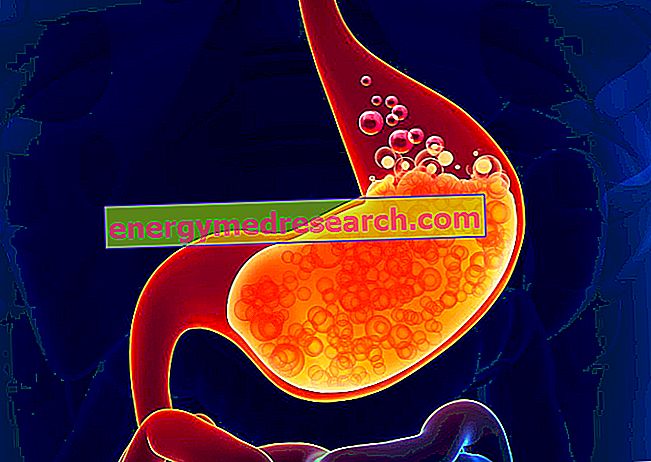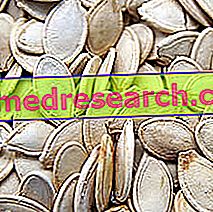Definition
Pelvic inflammatory disease appears to be the most common form of severe infection of the woman: it is an inflammatory process, with an acute or chronic course, against the female reproductive organs (in particular, fallopian tubes, uterus, ovaries and pelvic peritoneum) .
Causes
Pelvic inflammatory disease has infectious origin and is caused mostly by pathogens such as Chlamydia trachomatis, Neisseria gonorrhoeae, Mycoplasma hominis . The disease can result from infections from adjacent organs (eg appendicitis) or from blood (tuberculosis).
Symptoms
Lower abdominal pain and pelvis is the most common symptom of pelvic inflammatory disease. In addition to these, we recall: asthenia, diarrhea, difficulty urinating, dyspareunia, emesis, fever, lower back pain, abnormal and foul-smelling vaginal secretions.
Complications: loss of fertility, ectopic pregnancies, acute pelvic pain, abscesses within the tubes
Information on Pelvic Inflammatory Disease - Drugs for the Treatment of Pelvic Inflammatory Disease is not intended to replace the direct relationship between health professional and patient. Always consult your doctor and / or specialist before taking Pelvic Inflammatory Disease - Drugs for the Treatment of Pelvic Inflammatory Disease.
drugs
In most patients with pelvic inflammatory disease, an antibiotic treatment is sufficient for remission of symptoms and recovery from the disorder. In case of severity, the patient is hospitalized and treated with intravenous antibiotics, or subjected to a precise surgical intervention.
Before undertaking an antibiotic treatment, diagnosis is essential in order to identify precisely which pathogens are possibly involved in the manifestation of pelvic inflammatory disease.
The following are the classes of drugs most used in therapy against pelvic inflammatory disease, and some examples of pharmacological specialties; it is up to the doctor to choose the most suitable active ingredient and posology for the patient, based on the severity of the disease, the health of the patient and his response to treatment:
Macrolides
- Azithromycin (eg Azithromycin, Zitrobiotic, Rezan, Azitrocin): indicated in case of pelvic inflammatory disease. It is recommended to take 500 mg IV once a day; after two days of therapy, take 250 mg of active ingredient orally once a day for 7 days.
Tetracycline
- Doxycycline (eg Doxicicl, Periostat, Miraclin, Bassado): drug of choice for the treatment of pelvic inflammatory disease. It is recommended to administer 100 mg of active per os or intravenously every 12 hours, in combination with Cefoxitine, Ceftriaxone (even without the combination with metronidazole). In general, the duration of therapy is 2 weeks.
- Tetracycline (eg Tetrac C, Pensulvit, Ambramycin) for the treatment of pelvic inflammatory disease, tetracyclines are not always recommended because they are almost exclusively effective in combination with other more active drugs. An effective substitute for tetracycline is doxycycline.
Quinolones
- Levofloxacin (eg Levofloxacin, Tavanic, Aranda, Fovex): it is recommended to administer 500 mg of the drug every 24 hours parenterally or orally. Levofloxacin should be taken in combination with metronidazole in the case of known or suspected infection with anaerobic microorganisms in the context of pelvic inflammatory disease.
Cephalosporins
- Ceftriaxone (eg. Ceftriaxone, Pantoxon, Ragex, Deixim): outpatient treatment for the treatment of mild pelvic inflammatory disease involves the administration of 250 mg intramuscularly associated with doxycycline and / or metronidazole, as determined by the doctor. In the event of severity, 14-day doxycycline treatment is preferable (particularly useful for chlamydial infections associated with pelvic inflammatory disease).
- Cefoxitine (eg Mefoxin): for hospitalized patients with moderate pelvic inflammatory disease, intramuscular administration of 2 grams of drug associated with 1 gram of probenecid (eg Probenec) is recommended, followed by treatment per os with doxycycline or metronidazole, at the dosage indicated by the doctor. Alternatively, intravenously administer 2 g of active every 6 hours. Do not exceed 2 g ev every 4 hours or 3 g ev every 6 hours. Generally, the duration of therapy should be extended up to 24 hours after remission of symptoms.
- Cefotaxima (eg Cefotaxima, Aximad, Lirgosin): administer 1-2 g of drug intramuscularly / intravenously every 6-8 hours. Do not exceed 2 g ev every 4 hours. The approximate duration of the treatment for the treatment of pelvic inflammatory disease is 14 days: however, the therapy should be continued until complete recovery, as indicated by the doctor.
Lincosamides: (Antibiotics)
- Lincomycin (eg Lincocin) in general, it is recommended to administer this drug at a dose of 600 mg intramuscularly every 24 hours, in case of bacterial infections in general and pelvic inflammatory disease in particular. If the condition is severe, the dosage can be increased up to 600 mg twice a day (every 12 hours).
Beta Lactamase Inhibitors
- Ampicillin / sulbactam (eg Unasynim) administer 1.5 to 3 mg of intravenous or intramuscular medication every 6-8 hours. Parenteral therapy should be continued for up to 48 hours after complete remission of symptoms. Oral therapy can be useful as a supplement (for the following 14 days).
In order to lighten the symptoms of the disease, it is possible to take some anti-inflammatory drugs . The choice of drug and the dosage to relieve pain in the context of pelvic inflammatory disease must be indicated by the doctor.



